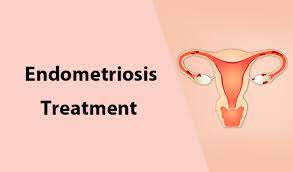Endometriosis is a health condition in which a tissue much like that which usually forms the inner lining of the womb (endometrium), grows outside it. The disorder generally involves your fallopian tubes, ovaries and the tissue lining the pelvis. Endometrial-like tissue is rarely found beyond the site where pelvic organs lie.
If you visit the best gynaecologist in Delhi, you can get yourself diagnosed with this condition. In case you have a positive diagnosis, you must go for endometriosis treatment. It commonly involves medication or a surgical procedure. The approach chosen depends on the severity of your symptoms and whether you wish to get pregnant.
The doctor will generally recommend conservative treatment options first and suggest surgery only if these approaches fail. They include prescribing pain medication and carrying out hormone therapy. These may be recommended in combination if you don’t want to become pregnant.
Here is all you need to know about the therapies available to treat endometriosis.
Hormone Therapies for Endometriosis
Supplemental hormones can at times help lower or remove the pain associated with endometriosis. The fluctuations in the levels of hormones during your menses cause endometrial implants to grow thick, rupture and bleed. Hormone therapy can often slow down the growth of endometrial tissue and prevent its new implants.
This kind of therapy is not a permanent treatment for endometriosis. The symptoms may return after the therapy stops.
The following therapies are used to treat this condition:
- Hormonal contraceptives: Vaginal rings, patches and birth control pills help control the hormones that cause the monthly buildup of your endometrial tissue. Several women experience shorter and lighter menstrual flow when they use hormonal contraceptives. Using them, particularly continuous-cycle regimens may lower or rid you of pain sometimes.
- Gonadotropin-releasing hormone (Gn-RH) antagonists and agonists: These drugs obstruct the production of ovarian-stimulating hormones, bringing down oestrogen levels and checking menstruation. So, the endometrial tissue ends up shrinking. Since these drugs create induced menopause, taking a low dose of progestin or oestrogen with Gn-RH antagonists and agonists may reduce the side effects of menopause. These often include vaginal dryness, hot flashes and bone loss. Your menses and the ability to become pregnant can come back when you cease to take the medication.
- Progestin therapy: Various progestin therapies including progestin pill (Camila), contraceptive injection (Depo-Provera), contraceptive implant (Nexplanon) or levonorgestrel (Mirena, Skyla) can halt the growth of endometrial implants along with your menstrual cycles. This may help relieve the signs of endometriosis.
- Aromatase inhibitors: These are a category of medicines that lower the level of oestrogen in your body. The healthcare provider may recommend a combination hormonal contraceptive or progestin together with an aromatase inhibitor for endometriosis treatment.
If pain medication and hormonal therapy are not effective, further treatment options like conservative surgery, fertility treatment and hysterectomy with ovarian removal are recommended. Consider visiting the best gynaecologist in Delhi to get yourself tested and receive a recommendation for the best hospital for your treatment. If recommended, it’s best not to delay endometriosis therapy or other procedures to avoid complications.












Comments